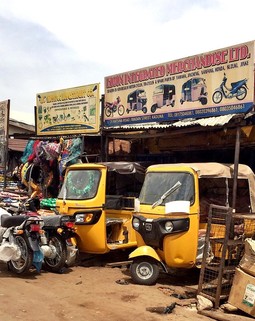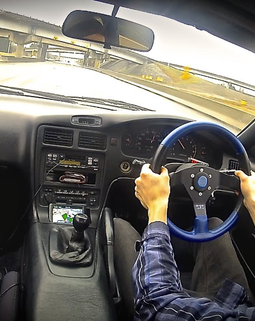In a groundbreaking achievement for Sierra Leone, 20-year-old James Samba has built the country's first electric car, showcasing the potential of youth innovation in the field of green technology. This remarkable feat not only puts Sierra Leone on the map in terms of automotive innovation but also highlights the possibilities of sustainable transportation in a country where such advancements are urgently needed. James Samba’s journey, his challenges, and the implications of this achievement for Sierra Leone’s future are nothing short of inspiring.
The Journey of James Samba: From Passion to Innovation
James Samba's journey into the world of automotive engineering began at an early age. Growing up in Sierra Leone, he developed a passion for vehicles and technology, often spending hours tinkering with mechanical parts and studying how engines work. His fascination with cars and a desire to contribute to his country's development fueled his ambition to create something extraordinary—an electric car.
Despite limited resources, James embarked on a journey of self-learning, using the internet and other available resources to educate himself on the principles of electric vehicles (EVs). His determination paid off when, at the age of 20, he successfully built Sierra Leone's first electric car, a feat that has drawn widespread attention and admiration.
Challenges Faced in Building the Electric Car
The path to building Sierra Leone’s first electric car was fraught with challenges. One of the most significant obstacles James faced was the lack of access to advanced tools and materials needed for such a project. In a country where the infrastructure for manufacturing and technological innovation is still developing, sourcing parts and assembling the car posed considerable difficulties.
Moreover, the financial burden of the project was another hurdle. Without formal backing or sponsorship, James had to rely on his ingenuity to repurpose and modify available materials. The battery, one of the car's most critical components, was created from recycled materials, showcasing James’ resourcefulness in overcoming the limitations posed by his environment.
In addition to these technical challenges, James also faced skepticism from those who doubted that such an ambitious project could be realized by a young individual in Sierra Leone. However, his unwavering commitment and belief in his vision helped him push through these barriers, ultimately leading to the successful completion of the project.
Impact on Sierra Leone and the Future of Green Technology
James Samba's electric car represents more than just a personal achievement; it is a symbol of what is possible in Sierra Leone when innovation meets determination. His accomplishment has significant implications for the future of green technology in the country. In a nation where the transportation sector is heavily reliant on fossil fuels, the introduction of electric vehicles could play a pivotal role in reducing carbon emissions and promoting sustainability.
The success of this project has also inspired a new wave of interest in automotive engineering and green technology among young Sierra Leoneans. James' story is a testament to the power of youth innovation and serves as an encouragement for other young minds to pursue their dreams, even in the face of adversity.
Furthermore, James' electric car could pave the way for further developments in the local automotive industry. With the right support, such as government incentives, partnerships with international organizations, and investment in research and development, Sierra Leone could become a hub for green technology in West Africa. The potential for mass production of electric vehicles in the country could lead to job creation, technological advancement, and a significant reduction in the environmental impact of transportation.
Conclusion
The creation of Sierra Leone's first electric car by 20-year-old James Samba marks a significant milestone in the country's journey toward sustainability and technological innovation. Despite the numerous challenges he faced, James' achievement stands as a powerful example of what can be accomplished with passion, ingenuity, and determination. As Sierra Leone looks to the future, the success of this project could herald the beginning of a new era in green technology, driving the nation toward a more sustainable and prosperous future.





